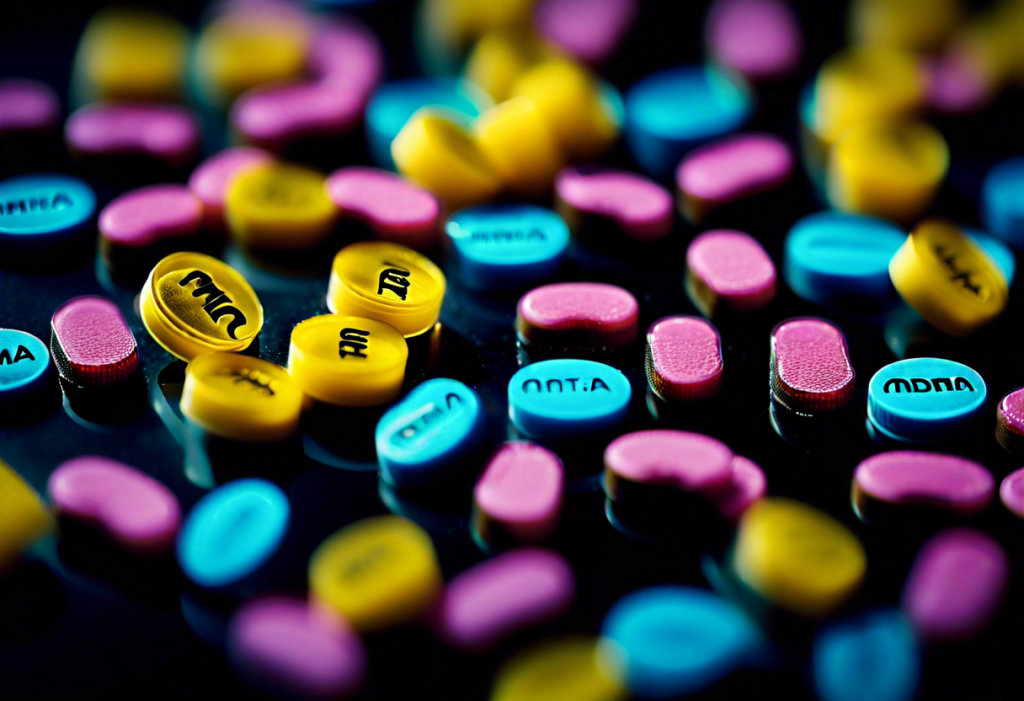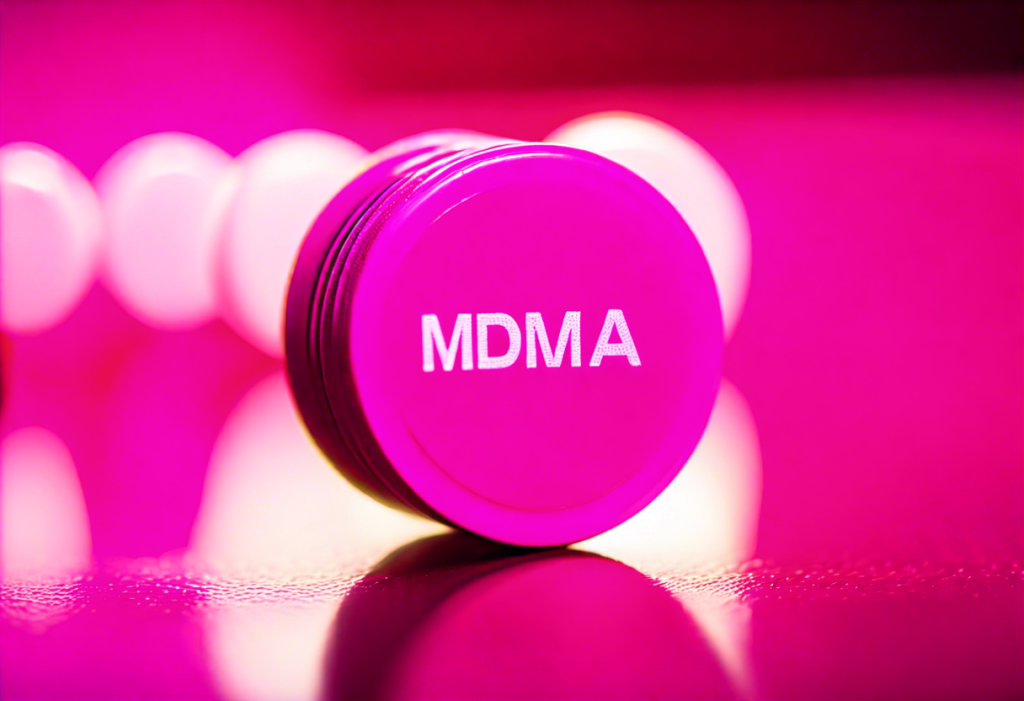The Science Behind MDMA Therapy: How Does it Work?
MDMA therapy, also known as MDMA-assisted psychotherapy, is a novel approach that combines the use of the drug MDMA (3,4-methylenedioxymethamphetamine) with psychotherapy techniques to treat various mental health disorders. This therapy has shown promising results in the treatment of post-traumatic stress disorder (PTSD), anxiety, depression, and other conditions.
Understandably, you may wonder how MDMA therapy works and what makes it an effective treatment option for these disorders. To shed light on this, let’s delve into the science behind MDMA therapy.
MDMA is a psychoactive substance that acts primarily by increasing the release of certain neurotransmitters, such as serotonin, dopamine, and norepinephrine, in the brain. Serotonin, in particular, is known to play a crucial role in regulating mood, emotions, and social behavior. By enhancing serotonin levels, MDMA can induce feelings of empathy, openness, and emotional connectedness.
During an MDMA therapy session, a trained therapist creates a safe and supportive environment for the patient. The therapist guides the individual through their emotions, thoughts, and memories, utilizing techniques from different forms of psychotherapy, such as cognitive-behavioral therapy (CBT) and psychodynamic therapy.
The introduction of MDMA into the therapeutic process is intended to facilitate deeper emotional exploration and introspection. It can help patients access difficult emotions, memories, and traumatic experiences that they may have otherwise found challenging to confront. By providing a sense of safety, trust, and well-being, MDMA can allow individuals to approach their trauma with reduced fear and resistance.
Moreover, the increased release of neurotransmitters induced by MDMA can promote neuroplasticity, the brain’s ability to change and reorganize itself in response to experiences. This neuroplasticity may aid in the formation of new, healthier connections between different brain regions and help individuals develop more adaptive coping mechanisms.
It is important to note that MDMA therapy is not about the drug alone. The psychotherapeutic component is essential and occurs before, during, and after the MDMA session. This integration of therapy and medication distinguishes MDMA therapy from recreational MDMA use.
Research studies, including phase 2 and 3 clinical trials, have demonstrated the potential of MDMA-assisted psychotherapy in reducing symptoms and improving overall well-being in individuals with treatment-resistant mental health disorders. However, it is crucial to seek professional guidance and receive treatment from qualified therapists who are trained in the specific protocols of MDMA therapy.
MDMA therapy combines the use of MDMA with psychotherapy techniques to address mental health disorders. By increasing neurotransmitter release and facilitating emotional exploration, MDMA can promote therapeutic breakthroughs and help individuals overcome their symptoms. However, it is essential to emphasize that MDMA therapy should only be conducted under professional supervision to ensure safety and maximize the potential benefits for patients.
The Potential Benefits of MDMA Therapy for Mental Health Disorders
MDMA therapy, also known as “ecstasy” or “Molly,” has gained significant attention for its potential benefits in the treatment of various mental health disorders. While primarily associated with recreational use in the past, MDMA has demonstrated promising results in clinical settings when used as an adjunct to psychotherapy.
One of the primary therapeutic applications of MDMA is in the treatment of post-traumatic stress disorder (PTSD). Research has shown that MDMA can enhance the effectiveness of traditional talk therapy by promoting increased trust, empathy, and emotional openness between the therapist and the patient. This heightened state of emotional connection can lead to more profound breakthroughs in therapy.
Furthermore, MDMA has also shown promise in the treatment of other mental health disorders, such as anxiety and depression. Clinical trials have revealed that MDMA-assisted psychotherapy can alleviate symptoms of treatment-resistant depression and anxiety disorders, providing relief to patients who have not responded well to traditional treatment methods.
One of the key benefits of MDMA therapy is its ability to facilitate emotional healing and personal growth. The drug has been shown to reduce fear and anxiety while enhancing feelings of trust and compassion. This combination of effects can create a safe space for individuals to explore and process deeply buried emotions, traumatic experiences, and negative thought patterns.
Moreover, MDMA therapy can provide individuals with a sense of perspective and clarity when navigating their personal challenges. By temporarily altering their consciousness, patients can gain new insights and better understand the root causes of their mental health issues. This newfound awareness can empower individuals to make positive changes in their lives and develop healthier coping mechanisms.
It is important to note that MDMA-assisted therapy is not a standalone treatment. It is administered in a controlled and supervised therapeutic setting, typically involving a trained therapist or psychologist. The therapy sessions are carefully structured to ensure safety and maximize the therapeutic benefits while minimizing potential risks or adverse effects.
While MDMA therapy shows promise in the treatment of mental health disorders, it is essential to approach it with caution and under the guidance of qualified professionals. The therapy requires thorough screening and assessment to determine if it is appropriate for an individual’s specific needs and circumstances.
MDMA therapy holds potential as a valuable treatment option for various mental health disorders, particularly PTSD, depression, and anxiety. By facilitating emotional healing, promoting trust, and offering a fresh perspective, this therapy can provide individuals with a transformative and healing experience. However, it is crucial to seek professional guidance and adhere to the recommended protocols to ensure the safe and effective use of MDMA as a therapeutic tool.
Exploring the History and Evolution of MDMA Therapy as a Treatment Option
MDMA therapy, also known as MDMA-assisted psychotherapy, is a treatment option that has gained significant attention in recent years for its potential positive impact on mental health disorders. While it may seem like a recent development, the use of MDMA in therapy actually dates back several decades.
Originally, MDMA was synthesized in 1912 by a pharmaceutical company looking for a substance to control bleeding. However, its psychoactive effects were not discovered until the 1970s when the renowned chemist Alexander Shulgin began experimenting with the compound. He recognized its therapeutic potential and introduced it to therapists, who started incorporating it into their therapy sessions.
In the 1980s, MDMA gained popularity as a recreational drug, leading to its classification as a Schedule I substance in the United States due to concerns about its potential for abuse. This classification made it difficult for researchers to study MDMA’s therapeutic benefits. Nevertheless, some therapists continued to explore its potential under compassionate use protocols.
In recent years, there has been a resurgence of interest in MDMA therapy as a viable treatment option. The Multidisciplinary Association for Psychedelic Studies (MAPS) has been at the forefront of this research, conducting phase 2 and 3 clinical trials to evaluate the safety and effectiveness of MDMA-assisted psychotherapy for post-traumatic stress disorder (PTSD).
The results from these trials have been highly promising, demonstrating significant improvements in PTSD symptoms for participants who received MDMA-assisted psychotherapy compared to those who received a placebo. These findings have paved the way for ongoing research and potential FDA approval for MDMA-assisted psychotherapy as a prescription treatment for PTSD.
The evolution of MDMA therapy has come a long way since its discovery in the early 20th century. While it faced challenges and stigma over the years, the accumulated evidence from clinical trials and personal testimonies has shed light on its potential therapeutic benefits. As a result, MDMA therapy is now recognized as a promising treatment option for individuals suffering from PTSD and other mental health disorders.
It is important to note that MDMA therapy should only be administered under the guidance of trained professionals in a controlled setting. The therapy typically consists of a series of sessions, including preparation, the administration of MDMA, and integration afterward. Therapists provide support and guidance throughout the process, allowing individuals to explore their emotions and experiences in a safe environment.
As ongoing research continues to uncover the potential benefits of MDMA therapy, it is crucial to approach this treatment option with a balanced perspective. While it shows promise for certain mental health disorders, further studies are needed to fully understand its long-term efficacy and potential applications. The evolution of MDMA therapy is a testament to the ongoing exploration of alternative treatments and approaches in the field of mental health.
Email: bestplug2000@gmai.com or Contact us
The Process of MDMA-Assisted Psychotherapy: What to Expect During a Session
MDMA-assisted psychotherapy is a unique and emerging form of therapy that has shown promising results in treating a variety of mental health disorders. The process involves the controlled use of MDMA, also known as ecstasy, to enhance the therapeutic experience and facilitate emotional healing. If you are considering this type of therapy, it is important to understand what to expect during a session.
Before the session begins, you will have an initial assessment with a trained therapist. This assessment is crucial for ensuring your safety and determining if MDMA therapy is appropriate for you. Your therapist will gather information about your medical history, current medications, and any previous experiences with psychoactive substances. It is important to be open and honest during this assessment to ensure that the therapy is tailored to your specific needs.
Once you have been deemed a good candidate for MDMA therapy, you will enter into a series of sessions typically lasting 8-10 hours each. These sessions are usually conducted in a comfortable and supportive setting, such as a therapist’s office or a designated therapy space. The therapist will create a safe and welcoming environment to facilitate the therapeutic process.
During an MDMA-assisted psychotherapy session, you will be given a dose of MDMA in a controlled and supervised manner. This dose is carefully calculated based on your individual needs and body weight. The effects of MDMA typically last between 3-6 hours, during which time you will be guided by your therapist through the experience.
It is important to note that MDMA therapy is not simply about taking a drug and waiting for it to take effect. The therapy session involves a combination of guided introspection, talk therapy, and somatic experiencing. The therapist will encourage you to explore your inner thoughts, feelings, and emotions while under the influence of MDMA. This heightened state of consciousness allows for a deeper level of self-reflection and introspection.
Throughout the session, your therapist will provide emotional support and guidance. They will encourage you to express your thoughts and emotions freely, helping you navigate any challenging experiences that may arise. The therapist will also employ various therapeutic techniques to facilitate healing, such as breathwork, body movements, and music.
After the effects of MDMA wear off, you will have the opportunity to discuss and integrate your experience with your therapist. This integration phase is crucial for processing the insights gained during the session and applying them to your everyday life. Your therapist will work with you to develop coping strategies and tools to navigate any challenges that may arise.
It is important to remember that MDMA therapy is not a quick fix or a one-size-fits-all solution. The therapy process typically spans several weeks or months, with multiple sessions scheduled to allow for deep emotional healing and integration. The therapeutic relationship between you and your therapist is instrumental in your journey towards healing and personal growth.
MDMA-assisted psychotherapy offers a unique and effective approach to mental health treatment. By understanding the process and what to expect during a session, you can make an informed decision about whether this therapy is right for you. Remember to always consult with a trained and experienced therapist to ensure your safety and well-being throughout the therapy process.
The Truth About MDMA Therapy: Addressing Concerns and Misconceptions
MDMA therapy, also known as ecstasy-assisted psychotherapy, is a groundbreaking approach to mental health treatment that has gained attention and sparked curiosity in recent years. While it may raise eyebrows and elicit hesitations due to its association with recreational drug use, it is essential to separate the misconceptions from the facts when considering MDMA therapy as a viable option for mental health disorders.
One common concern surrounding MDMA therapy is its potential for addiction. It’s important to note that the therapeutic use of MDMA is vastly different from recreational use. In controlled therapeutic settings, MDMA is administered in a carefully monitored and regulated manner, with specific dosages administered by trained professionals. This significantly reduces the risk of addiction or misuse, ensuring the safety of the patient.
Another misunderstanding lies in the perception that MDMA therapy is a quick fix or a magic pill for mental health disorders. In reality, MDMA-assisted psychotherapy is an intensive and comprehensive process that incorporates three distinct phases: preparation, the MDMA session itself, and integration. These phases work together to facilitate deep healing and transformation.
During the preparation phase, the therapist establishes a safe and trusting therapeutic relationship with the patient. The therapist explains the purpose, potential benefits, and possible risks of MDMA therapy, addressing any concerns or misconceptions the patient may have. This preparatory phase helps set the stage for the upcoming MDMA session.
The MDMA session itself occurs in a controlled environment, usually with two therapists present to ensure both physical and emotional safety. The patient ingests a carefully measured dose of MDMA, which facilitates a heightened state of consciousness, opening the door to deep introspection and emotional exploration. The therapists provide support and guidance throughout the session, helping the patient navigate their emotions and process traumatic experiences.
Following the MDMA session, the integration phase begins. This phase enables the patient to make meaning of their experiences and integrates the insights gained from the session into their daily life. The therapist helps the patient connect the insights gained during the session to their overall mental health goals, fostering lasting change and growth.
It’s crucial to understand that MDMA therapy is not a standalone treatment but rather an adjunct therapy used in conjunction with traditional approaches such as psychotherapy. The sessions with MDMA act as catalysts, unlocking emotions and memories that may be challenging to access through traditional talk therapy alone. This synergistic approach allows for a deeper level of healing and personal transformation.
MDMA therapy is a powerful treatment option for mental health disorders that should not be dismissed based solely on misconceptions or concerns. When administered under the guidance of trained professionals, MDMA therapy can offer profound benefits, facilitating healing and growth in individuals struggling with various mental health conditions. By addressing concerns and demystifying misconceptions, it becomes increasingly evident that MDMA therapy has the potential to revolutionize the field of mental health treatment.
Conclusion
The field of MDMA therapy has shown immense promise in revolutionizing the way mental health disorders are treated. As we have explored, the science behind MDMA therapy reveals how this unique compound can profoundly affect the brain, fostering trust, empathy, and emotional healing. This therapeutic approach holds great potential for individuals suffering from PTSD, anxiety, and depression, as well as other mental health disorders.
Throughout history, the evolution of MDMA therapy can be traced back to its origins as a party drug in the 1970s, to its eventual recognition as a valuable tool for psychotherapy. The discovery of its therapeutic benefits led to a resurgence of interest, and clinical trials have provided compelling evidence supporting its efficacy in treating various mental health conditions.
The process of MDMA-assisted psychotherapy is meticulously structured to ensure safety and effectiveness. Sessions involve a preparatory phase, the administration of MDMA, and a subsequent integration phase. During the session, individuals can expect to experience heightened emotions, self-reflection, and increased openness. Qualified therapists provide a safe, supportive environment to guide patients through their healing journey.
While there are concerns and misconceptions surrounding MDMA therapy, it is crucial to address them with a balanced perspective. Despite being categorized as a Schedule I substance, its therapeutic use under controlled conditions has proven to be safe. Extensive research and clinical trials demonstrate the potential benefits of MDMA therapy when conducted by trained professionals in carefully controlled settings.
The potential benefits of MDMA therapy cannot be overstated. By unlocking emotional healing, individuals with mental health disorders can build resilience, overcome trauma, and experience significant improvements in their overall well-being. This therapy has the potential to revolutionize mental health care by offering an alternative treatment option for those who have not found relief through traditional methods.
In closing, the ins and outs of MDMA therapy have been thoroughly explored, shedding light on its scientific foundation, potential benefits, historical development, treatment process, and dispelling common misconceptions. As more research continues to unfold, it is likely that MDMA therapy will gain even greater recognition and acceptance in the field of mental health. The future looks promising, with more individuals discovering the transformative power of MDMA therapy in finding relief from their mental health disorders.
Email: bestplug2000@gmai.com or Contact us




